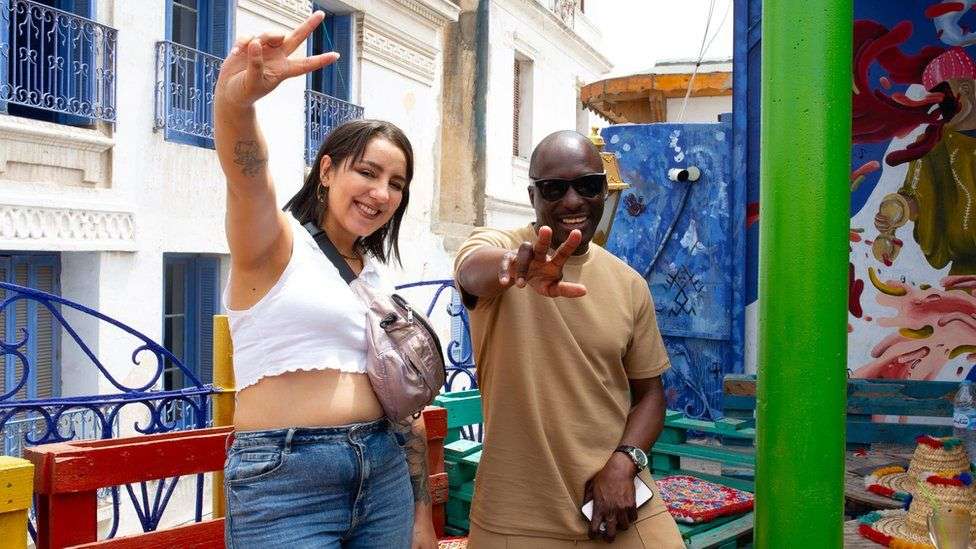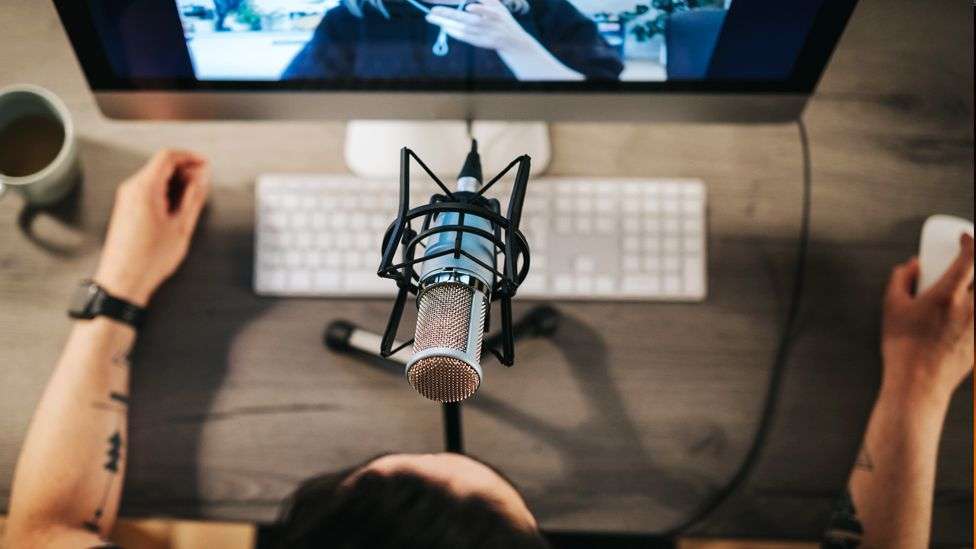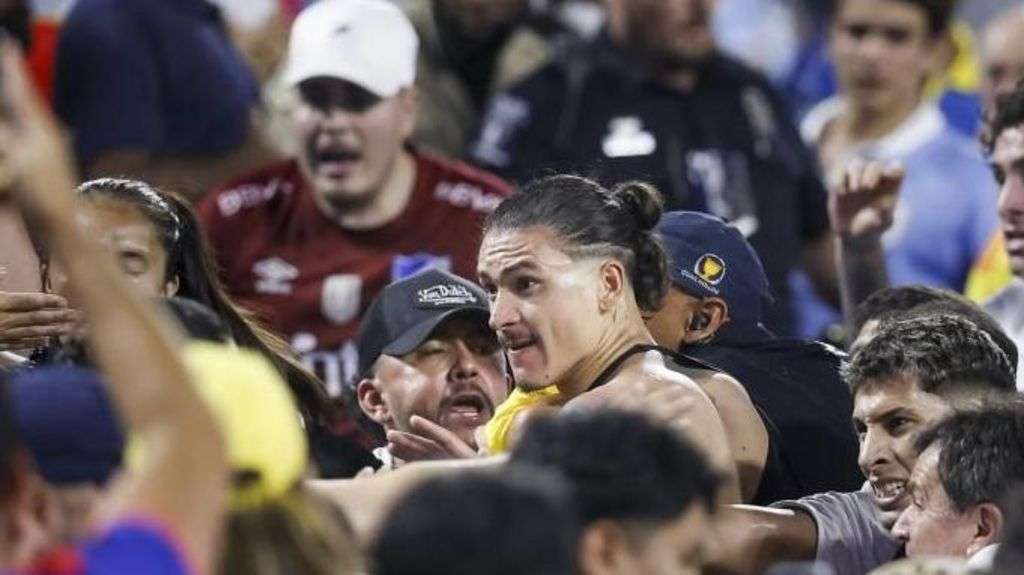Khtek is one of Morocco's most popular female rap artists. In fact, she's probably the brightest star of her generation in her country's female hip-hop firmament.
In the three years since she burst onto the scene, she has won many fans, especially young women, with her bravery, openness and unwillingness to conform to expectations.
For a start, she doesn't present herself as a star - whatever that means.
When I meet Khtek, whose real name is Houda Abouz, in her favourite café in the middle of the bustling medina in Morocco's biggest city, Casablanca, she looks like the girl next door, relaxed jeans, crop top, body bag.
The only concession to glamour is her shimmering eye make-up.
On stage, performing with huge charisma for her adoring fans, she isn't much different - the crop top swapped for a silver bandeau. Khtek still appears to be presenting her authentic self, and the crowd loves her for it.
Khtek's choice of name is itself a form of throwing down the gauntlet to men on behalf of women. In Darija, Moroccan Arabic, "khtek" means "your sister", she tells me, and it is used by men as a way of insulting one another.
"They think that your sister is something sacred that can't be touched, a point of weakness. I used to listen to a lot to rap before even starting rapping and I noticed that a lot of people use the word 'khtek' to disrespect other rappers, to make fun of them.
"And I was like: 'Why are we using this word in this way?'" Then she thought: "It might be interesting to become the sister that everyone is dissing and we're gonna see."
It proved to be a smart move, because the name Khtek got her a lot of attention. Though at first, she says, radio hosts used to try to tone it down and call her "the sister", which is less offensive.
Khtek started freestyling and performing at festivals even before she had recorded anything, but it was when she began sharing her art on her social media accounts that things really took off.
"I started receiving really huge feedback. I went from the little girl who rapped on the streets to becoming one of the biggest female rappers in Morocco - and I'm not saying that because of ego, just because it is true."
In 2020 Khtek featured on a couple of songs with some of Morocco's biggest male rap stars - Hors Série with El Grande Toto, Draganov and Don Bigg, and Fratello with Tagne and Stormy.
Khtek tells me she's been fascinated by the rap scene in Morocco and how it has evolved.
"Back in 2013 there were two main things that were happening, which were like political rap, underground rap, rap that was really critiquing the system, the society we live in and touching big subjects and taking risks in their music, and other rappers that were just doing the music for the sake of the music, trying to make their names heard and take Moroccan hip-hop to another level," she says.
Khtek feels that compared to the heady days of the Arab Spring, young people, including rappers, are no longer so interested in politics.
"Now people are only talking about cars, about going on vacation, about having money - before we didn't have Instagram, and influencers, seeing people on trips, brands, all of that mindset.
"We are not talking about serious subjects. That's why we are not getting arrested. People who are talking about serious subjects are getting arrested," she says.
Khtek says she focuses on "things that really matter to me, which are mental health, women's rights, the situation I live in, the fact that we don't really have freedom of expression, even my contradictions, things that I see in myself and my society".
Khtek talks about mental health with great openness in her music and in interviews.
She herself has struggled with depression since she was a child, and she was diagnosed with bi-polar disorder in 2016.
Khtek says the disorder, and the medication she now takes to regulate it, have brought challenges, including making her feel sluggish at times, and putting on weight, but overall she's very positive and feels passionate about communicating this.
"It's my reality, and it makes me who I am, because bi-polar disorder can be really related to creativity. A lot of the most amazing creatives in the world, even Kanye West, he is struggling with bi-polar disorder.
"It makes me understand why certain people do certain things. It makes me see the world differently. I don't take happiness for granted.
"A lot of times I talk about being sad, about having suicidal thoughts, about being manic, about all the times that I think I'm going crazy, so it inspires my work and makes me an artist with a story to tell, so I'm really grateful for having bi-polar disorder, as weird as it can seem."
The positive response Khtek has received for opening up about this has been rewarding for her. In Morocco, she tells me, many people hide their mental illness and will not take their medication in public.
This is because some Moroccans believe that mental illness is a kind of moral failing - you are not close enough to God.
"Yes, praying can help and spirituality can help. It can make you feel better. But when you have something that comes from hormones, it comes from things that are really biological in your brain. It's like having diabetes. When you have diabetes, you take meds," she says.
Khtek says she was lucky to have the support of her family.
"If I was raised in another family maybe they will think I am possessed or something like that, they will take me to get [an] exorcism and those things can be really dangerous," she says.








